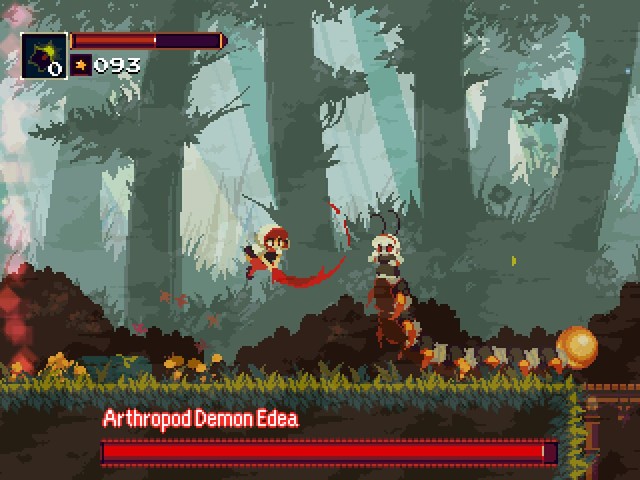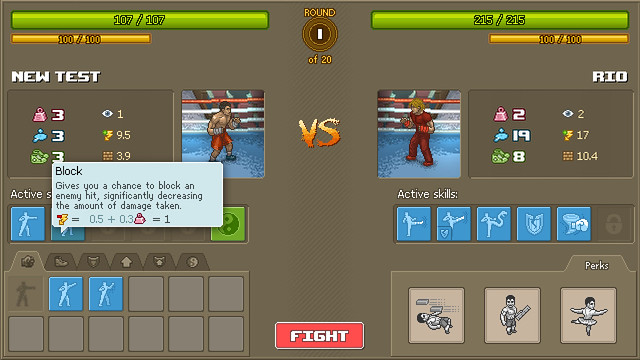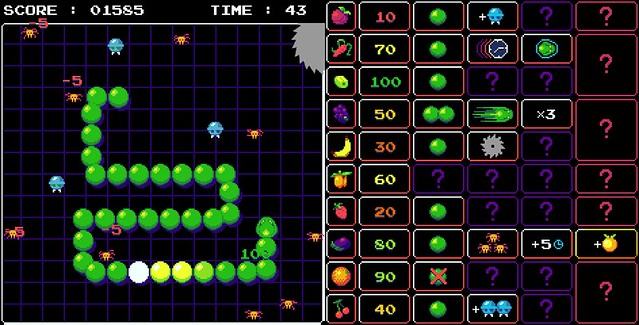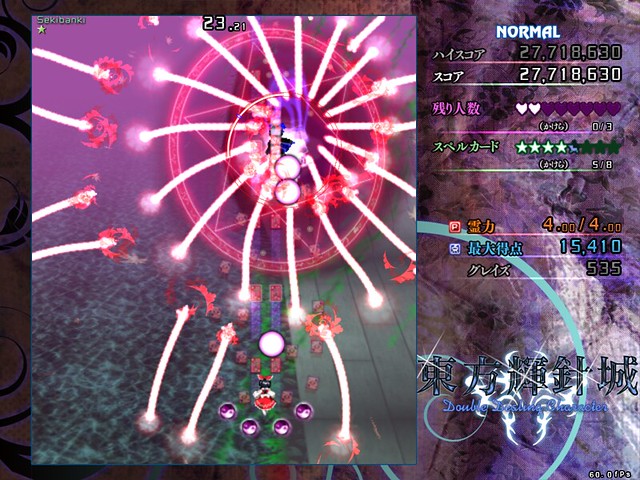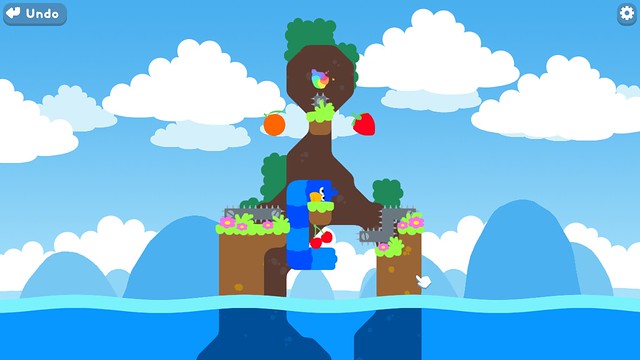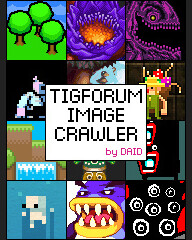Posts from ‘Windows’ Category
Dive into Early Access with We Need to go Deeper
By: Alehkhs
On: February 18th, 2017
As our submersible descended, the waters grew darker around us. Looming teeth, some as long as a man’s leg, skirted the edge of our floodlights. The captain was sure this area held caves filled with golden bounty, but to those creatures of the deep it was our flesh and blood that were the true prizes…
As someone who’s both a fan of marine exploration and co-operative gameplay, I have been having a blast playing Deli Interactive’s first commercial title, We Need to go Deeper.
Imagine Lovers in a Dangerous Spacetime, only set in the crushing, inner space of our dark oceans. Billed as “a multi-player submarine rogue-like set in a Verne-inspired underwater universe,” We Need to go Deeper places you and up to 3 other players in command of a submarine and charges you to work together to plumb the depths in search of riches and glory.
It’s not a simple matter of pointing and clicking however, as the various roles in the submarine – taking the helm, firing torpedoes, balancing power, patching leaks, and repelling tentacles – can’t be done all at once by a single player. That’s where your fellow crew members come in, each taking up a station in a frantic attempt at teamwork. As Deli Interactive explains, “We Need to go Deeper was created under the mindset of having friends scream at each other.” As your crew makes its way to the bottom, they will come across various caves scattered along the seafloor. Once a cave has been found, the action moves outside the submarine as the players don diving suits and explore the caves in search of gold and other rewards. All the while, both in the submarine and on foot, dangerous creatures of all sizes and shapes swarm and attack.
Though it has only recently entered Early Access on Steam, We Need to go Deeper already offers a wonderful submarine odyssey that you can share with your friends. A lobby system even allows for you to join with strangers, and the developer has set up a Discord server specifically for sole players looking for a crew.
If the promise of riches, teamwork, and/or painful death in the deep sea appeals to you, you can grab a copy on Steam or at the game’s official website!
Synonymy
By: ithamore
On: August 15th, 2016
“Synonymy is a non-profit, educational word game narrated by Richard Dawkins in which players are challenged to find the paths between random words through their network of synonyms. By taking the synonym of a word, and then a synonym of that synonym, and so on, you can ultimately arrive at any other word in the English language.”
It is rare when I’m impressed by a word game, and I love word games. The Steam demo is also a good example of a tastefully crafted demo, so please take note.
Momodora: Reverie Under the Moonlight
By: Derek Yu
On: July 7th, 2016
It’s become a joke to talk about Cave Story and Dark Souls when describing other games, but in the case of Momodora: Reverie Under the Moonlight, I’d be remiss not to: the series has never been shy about its influences. In Reverie, the fourth game of the Momodora series, rdein has done a fantastic job joining the simple charm and tidy aesthetic of Daisuke Amaya’s little masterpiece with the methodical combat mechanics and level design of From Software’s Souls games. The result is something of a “perfect” Metroidvania, which feels neither meandering nor linear, frustrating nor dull. And it’s easy to see why rdein considers this to be his best-looking and most polished game yet: out of all the many beautiful animations and effects in the game, there’s not a single pixel that seems out of place.
In this bustling age of indie game development, it can be refreshing to see a title that shows restraint in its design without being minimalist or abstract. You’ll love Reverie if you enjoyed any of its influences. At this year’s Summer Games Done Quick (going on right now), it produced one of the marathon’s most heartfelt and inspiring runs:
Punch Club
By: Derek Yu
On: February 24th, 2016
The Rocky Balboa-esque boxing theme and pixel art are what got me to try out Punch Club, a management game from Lazy Bear Studios. On the surface, the idea of moving direct control away from the fighting seems like a bad one, but it’s satisfying to see your training pay off as your character punches, kicks, and blocks on his own. Outside the ring, it’s all about efficient management of time and money – you want to spend each day training and sparring to improve your chances of winning, but your character also has to buy food and gym membership, which means taking on construction and pizza delivery jobs to make ends meet. Making things more difficult is the fact that your three main stats – strength, agility, and stamina – actually drop a little bit at the end of each day. Just like in real life, it takes sustained work to keep your physique in good shape.
The biggest problem with Punch Club is the skill system. When I played the game, its three main build paths were very imbalanced. Initially, I went with a strength build, called the Way of the Bear, and found halfway through that I had hit a wall against the agile opponents whom the game heavily favors. The intent behind strength characters is that they get fewer opportunities to punch, but can end matches quickly if they can string some hits together. In practice, unless your agility stat is comparable to your opponent’s, you probably won’t land a hit at all. The Way of the Tiger, on the other hand, allows you to focus solely on agility and a little bit of stamina, learning counterattacks that use your opponent’s strength against them. The supposed weakness of agility – damage potential – ends up not feeling like a handicap at all. And the stamina-focused Way of the Turtle is apparently even harder to succeed with than Bear.
It’s a shame, because the interplay between the resource management and fighting works well fundamentally. If you were given more interesting and well-balanced choices in terms of designing your character and his (or even her?) story, it could have found a permanent home on my phone (where I think this game is best-suited). As it is, one time through is enough for me.
Dwarf Fortress 0.42.01: Taverns, Temples, and Troupes. Oh My!
By: Alehkhs
On: December 1st, 2015
Winter is here, and with it the next release of Tarn Adams’ Dwarf Fortress has arrived.
Dwarf Fortress 0.42.01 continues to build upon the “living world” features added in last year’s major release, allowing players even more interaction with the larger world outside their fort (or lone adventurer). Troupes, mercenaries, refugees, scholars, and more will now visit your fort. Social interaction will also play a larger role so inns, taverns, and temples have been introduced as social areas. Libraries have also been added for more bookish individuals, collecting the various written works and technological advancements of the world.
To aid in the new mingling scene, the inhabitants of your world will now compose poetry, music, and dance forms. While these are currently only described in text, the Dwarf Fortress community has already begun to provide some fantastic real-world interpretations from those descriptions (Listen:The Superior Rampart; Listen:The Grasping Oaks). Of course, these features are also available in the game’s Adventure Mode. Rather than running a fort, players can instead lead a performing troupe on a world tour!
For a more complete changelog, and to download the latest version of Dwarf Fortress, head on over to Bay 12 Games.
Nova-111
By: Alehkhs
On: August 25th, 2015
From funky-fresh indie studio Funktronic Labs‘ comes sci-fi adventure/puzzler Nova-111. Bringing together a mix of turn-based movement and attacks with both turn-based and real-time threats, Nova-111 manages to evoke memories of the classic Chip’s Challenge.
Players control the Nova, a scientific vessel that has been flung into a strange dimension of mixed time, and are charged with guiding the ship and 111 collectible rescuable scientists back to safety. Along the way, upgrades can be found for the Nova that give the player more ways to move about the environment and manipulate time. Puzzles present themselves not only in navigating the terrain, but in the crafty and effective dispatchment of enemies. Combine this with the vibrant art and groovy music from Funktronic Labs, and progressing through Nova-111 can quickly approach a dance-like experience of timing and positioning. With global leaderboards for both “least turns” and “least time,” it surely won’t be long before some amazing speedruns appear.
Nova-111 launches on PC (via Steam, and DRM-free from the game’s website) and PS4 today; Xbox One on August 28th; and PS3 and PS Vita on September 1st. A Wii-U release is expected later this year.
Serpentes
By: Derek Yu
On: July 10th, 2015
Serpentes is a fantastic take on the classic Snake game where you eat fruit to extend your length and have to avoid running into walls or yourself. Created by Benjamin Soulé, the developer behind those great Pico-8 carts, Serpentes adds a clever twist to the formula: fruits are given a number of random properties each time you play that are unlocked by collecting them. As you can see in the above screenshot, half the screen is taken up by a grid that displays the properties of each fruit. Collecting a fruit once will unlock the fruit’s score, followed by the length the fruit adds to your snake, followed by a negative effect, followed by a positive one. Finally, if you collect enough of one fruit to make it to the final, fifth column, you can unlock some powerful, permanent effects like a tail that shoots lasers, as well as a few tricky mini-games that can boost your score astronomically.
It captures the spirit of the original Snake perfectly by making the player the architect of his or her own demise, and then dials it up to eleven. Once you’ve reached the fifth column, collecting fruits adds some serious chaos to the play area, and a good short-term memory and reflexes are required to keep it manageable without running down the timer. You’ll constantly want to glance over to the right to figure out which fruit to collect, but that distraction can mean life or death as the game progresses.
The only thing marring Serpentes as it currently stands is an occasional crash bug that involves the laser not being able to find its target (possibly because it was killed by something else). It kinda sucks because when you have the laser, it means you’re doing pretty well. Thankfully, the timer is short and you can try a free demo to see if it ruins your play experience. The demo is like the full game except that you can only select one snake power on the title screen instead of two. Hopefully, this bug will be fixed sometime in the near future.
UPDATE: The bug has been fixed in version 1.1, which you can download from the same link!
DevLog Spotlight: Relativity
By: Derek Yu
On: July 8th, 2015
What if gravity worked differently, and you could walk on walls and ceilings? In the world of Willy Chyr’s RELATIVITY, the universe repeats endlessly in every direction. Falling down actually leads you to the top. In this world, up is down and down is up. It’s all relative.
Willy Chyr has been conscientiously updating his TIGForums devlog for Relativity since November, 2013, when the game was a much-different-looking prototype. An installation artist who studied physics in school, Willy takes us with him step-by-step through the process of developing his game, discussing everything from architecture to Unity technology to game conventions in depth, with plenty of screenshots and gifs to boot. It’s hard to ask anything more of a devlog and the game, which promises beautiful puzzle worlds that repeat infinitely in every direction, is worth checking out.
The game is slated for 2016 release on PlayStation 4, PC, Mac, and Linux.
Double Dealing Character (Touhou 14) on Playism
By: Derek Yu
On: June 14th, 2015
The fourteenth game in the popular Touhou danmaku shoot ’em up series, Double Dealing Character, is also the first one to receive an official release outside of Japan, through Playism, an indie game distribution platform that focuses on Japanese indie titles. This is also the first Touhou game to get released as a downloadable title – the series is usually released on CD at Tokyo’s Comic Market. “Comiket”, as it’s more commonly known, is the world’s largest convention for doujin works.
The scoring system in DDC is based around the “POC” (point of collection), an invisible line near the top of the screen that appears in all of the modern Touhou games. By crossing this line, any point items dropped by enemies will be sucked in by the player. In DDC, this leads to higher scores as well as bonus items that can grant bombs or extends.
The simple, “back to basics” scoring system and digital download make DDC a decent enough introduction to the Touhou series, although it should be noted that this is not a localized port, just a convenient way to purchase and play the original Japanese game that was released at Comiket in 2013. However, this wiki explains the basic mechanics and screen layout. A three-level demo is also available to try out before purchasing.
Snakebird
By: Derek Yu
On: May 19th, 2015
It’s a bird! It’s a snake! It’s Snakebird, a challenging new puzzle game from Noumenon Games, the creators of Nimbus! (Would you believe that I get paid absolutely nothing to write amazing lead-ins like that?) Your goal in each level is to get one or more colorful snakebirds to the exit using their unique anatomy, which lets them twist, turn, and balance on a single segment of their long bodies. Collecting fruit will extend the birds by one segment, making it possible to reach new areas but also easier to get trapped. And you’ll get stuck or killed plenty of times in this unforgiving game – even levels that look relatively contained can be confounding, with plenty of pitfalls, spikes, and small spaces to contend with. Being pretty bad at puzzlers, I can barely make it out of the first area myself, but at least that means there’s plenty of time for me to appreciate the lovely landscapes and wonderful little details.
Thankfully, Noumenon has included an undo feature to make the trial-and-error style nature of Snakebird less frustrating. Personally, I would have loved to see a mouse shortcut for undo given how often you use it, but it’s a small gripe for what seems to be an attractive and unique experience for fans of hard-won puzzle games.
